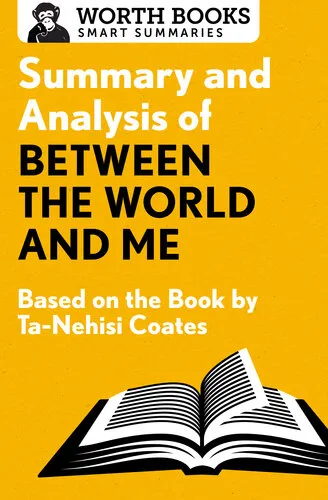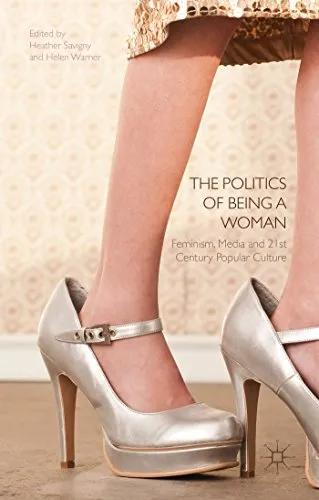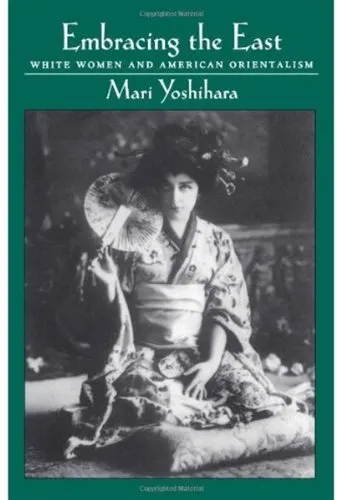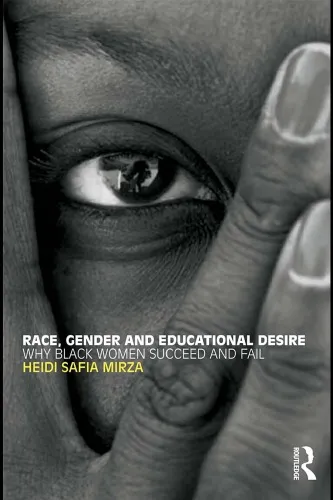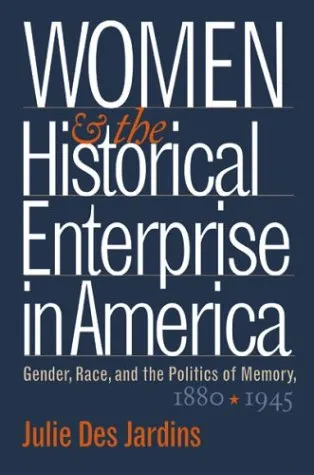Women without Class: Girls, Race, and Identity
4.9
بر اساس نظر کاربران

شما میتونید سوالاتتون در باره کتاب رو از هوش مصنوعیش بعد از ورود بپرسید
هر دانلود یا پرسش از هوش مصنوعی 2 امتیاز لازم دارد، برای بدست آوردن امتیاز رایگان، به صفحه ی راهنمای امتیازات سر بزنید و یک سری کار ارزشمند انجام بدینکتاب های مرتبط:
خلاصه تحلیلی کتاب
کتاب Women without Class: Girls, Race, and Identity اثر جولی بتی، یک پژوهش جامعهشناختی عمیق درباره هویت دختران دبیرستانی در ایالات متحده است که روابط میان جنسیت، نژاد و طبقه اجتماعی را در بستر زندگی روزمره آنها تحلیل میکند. نویسنده با استفاده از روشهای کیفی، بهویژه ethnography، به درون زندگی گروهی از دختران با پسزمینههای اجتماعی متفاوت نفوذ کرده و نشان میدهد که چگونه ساختارهای اجتماعی و فرهنگی، برداشت آنها از خود و جایگاهشان را شکل میدهند.
این اثر نهتنها به بازنمایی تجربیات شخصی این دختران میپردازد، بلکه نقدی ساختاری بر سیستم آموزش و فرهنگ غالب ارائه میدهد؛ سیستمی که اغلب هویتها را بر اساس قالبهای طبقاتی و نژادی بازتولید میکند. جولی بتی به خواننده کمک میکند تا ببیند چگونه روابط قدرت و ساختارهای اجتماعی از طریق زبان، تعاملات روزانه و حتی انتخابهای ظاهری مانند لباس، بازتاب یافته و تثبیت میشوند.
نکات کلیدی و کاربردی
کتاب با شکستن مرزهای رایج در تحلیل جنسیت و طبقه، نشان میدهد که هویت فردی هرگز مستقل از زمینههای اجتماعی شکل نمیگیرد. این یافتهها برای پژوهشگران مطالعات جنسیت، جامعهشناسی آموزش، و فعالان عدالت اجتماعی ارزشمند هستند.
یکی از نکات کلیدی کتاب، توجه به تعامل پیچیده نژاد و طبقه در شکلگیری هویت زنان جوان است؛ بتی تأکید میکند که بدون درک این تعامل، نمیتوان راهحلهای مؤثری برای کاهش نابرابریها ارائه داد. همچنین، کاربرد روش ethnography در این پژوهش نمونهای عالی از چگونگی استفاده از مشاهده مشارکتی برای دستیابی به فهم عمیقتر از زندگی روزانه افراد است.
نقلقولهای ماندگار
در دل کتاب، جملاتی وجود دارند که ماهیت پژوهش بتی را بهخوبی روشن میکنند و میتوانند تأملبرانگیز باشند.
هویت، انعکاسی از تجربه زیسته در میان ساختارهای قدرت است. نامشخص
طبقه فقط یک موقعیت اقتصادی نیست، بلکه مجموعهای از انتظارات، ارزشها و بازنماییهاست که بر زندگی روزانه ما سایه میاندازد. نامشخص
نژاد، طبقه و جنسیت هیچگاه جدای از یکدیگر عمل نمیکنند؛ آنها شبکهای بههمپیوسته هستند. نامشخص
چرا این کتاب اهمیت دارد
اهمیت کتاب Women without Class: Girls, Race, and Identity در آن است که نگاه ما را به آموزش، فرهنگ و جامعه دگرگون میکند. این اثر بهشکل قابل توجهی پرده از لایههای پنهان نابرابری برمیدارد و نشان میدهد که برچسبها و دستهبندیهای اجتماعی چگونه بر فرصتهای زندگی تأثیر میگذارند.
برای پژوهشگران و فعالان اجتماعی، مطالعه این کتاب میتواند نقطه شروعی برای ایجاد تغییر باشد. بهویژه در حوزههایی مانند اصلاح سیاستهای آموزشی یا طراحی برنامههای فرهنگی که هدف آنها افزایش عدالت و برابری است. بتی با نگاهی انتقادی و روشمند، گرههای موجود در روابط اجتماعی را نشان میدهد؛ گرههایی که بدون شناخت دقیق، باز کردنشان دشوار خواهد بود.
نتیجهگیری الهامبخش
کتاب Women without Class: Girls, Race, and Identity نهتنها یک پژوهش ارزشمند در حوزه جنسیت و طبقه است، بلکه دعوتی است از خواننده برای بازنگری در دیدگاههای خود نسبت به هویت و عدالت اجتماعی. این کتاب به ما یادآوری میکند که هر فرد داستانی پیچیده دارد که در بستر ساختارهای اجتماعی شکل میگیرد و شناخت این داستانها میتواند راه را برای تغییر هموار کند.
اگر به دنبال فهم عمیقتر از تعامل
Analytical Summary
“Women without Class: Girls, Race, and Identity” is an incisive sociological study that delves into the intersections of class, race, and gender in the lives of high school girls. Written with ethnographic precision, it stands as a seminal text for readers seeking to understand how structural inequalities and cultural narratives shape identity formation among young women.
Through immersive research in a California high school, the book examines the ways in which diverse groups of girls negotiate and perform their identities within peer networks, academic constraints, and societal expectations. Far from treating class as an economic category alone, it interrogates the cultural dimensions of class, revealing how perceptions of “respectability,” femininity, and ambition are anchored in social positioning.
While race and gender are often studied in isolation, this text applies an intersectional lens, acknowledging that these categories are deeply intertwined. Such framing allows for a more nuanced understanding of how inequalities are reproduced in everyday social interactions and institutional practices. The narrative attends to the voices of working-class Latinas, white middle-class girls, and other groups, illustrating how diverse identities are constructed and contested.
Key Takeaways
Readers will emerge from “Women without Class: Girls, Race, and Identity” with a layered comprehension of intersectionality, especially as it operates in educational contexts.
First, the book illuminates how class distinctions manifest not only in resources but in styles, language, and symbolic capital. Secondly, it underscores that race is inseparable from class in shaping the life chances and self-concepts of adolescent girls. Thirdly, it offers critical insight into the role of schools as both sites of opportunity and arenas for social reproduction. It also shows how peer cultures can reinforce or resist dominant norms. Finally, it documents the agency of young women in navigating, challenging, or embracing imposed identities.
Memorable Quotes
Identity is not a simple reflection of economic status; it is woven through with culture, meaning, and self-perception. Unknown
Schools teach more than curriculum; they instruct on how to fit within—or push against—the borders of class and race. Unknown
The performance of femininity is never neutral—it is tethered to the expectations of one’s social location. Unknown
Why This Book Matters
For academics, educators, and policymakers, “Women without Class: Girls, Race, and Identity” is more than a case study; it’s a mirror held up to the institutional and cultural ecosystems that shape youth.
Its ethnographic depth makes it indispensable for courses and discussions on sociology, gender studies, and educational inequality. By bridging theory and lived experience, it reveals how stereotypes and systemic biases are reinforced or contested within everyday encounters. It equips its audience with the critical tools to recognize these dynamics and consider transformative interventions. The text also enriches professional dialogue around intersectionality, making it applicable to counselor training, curriculum planning, and social policy development.
Information regarding awards or honors is unavailable, as no reliable public source confirms such recognitions. Nonetheless, its scholarly reception underscores its status as an influential work in qualitative sociology.
Inspiring Conclusion
“Women without Class: Girls, Race, and Identity” invites readers to look beyond surface categories of race, class, and gender to understand the deeper forces shaping identity.
This book’s rich analysis empowers educators, students, and scholars to not only grasp the mechanics of social reproduction but also to envision pathways for change. By situating the lived experiences of adolescent girls within broader sociocultural frameworks, the text drives home the urgency of critically examining how our institutions contribute to inequality. Engaging with “Women without Class: Girls, Race, and Identity” is a step toward rethinking educational and social policies that impact the most vulnerable youth. Readers are encouraged to read, share, and discuss this work, expanding its insights into both academic circles and everyday conversations.
دانلود رایگان مستقیم
شما میتونید سوالاتتون در باره کتاب رو از هوش مصنوعیش بعد از ورود بپرسید
دسترسی به کتابها از طریق پلتفرمهای قانونی و کتابخانههای عمومی نه تنها از حقوق نویسندگان و ناشران حمایت میکند، بلکه به پایداری فرهنگ کتابخوانی نیز کمک میرساند. پیش از دانلود، لحظهای به بررسی این گزینهها فکر کنید.
این کتاب رو در پلتفرم های دیگه ببینید
WorldCat به شما کمک میکنه تا کتاب ها رو در کتابخانه های سراسر دنیا پیدا کنید
امتیازها، نظرات تخصصی و صحبت ها درباره کتاب را در Goodreads ببینید
کتابهای کمیاب یا دست دوم را در AbeBooks پیدا کنید و بخرید
1407
بازدید4.9
امتیاز0
نظر98%
رضایتنظرات:
4.9
بر اساس 0 نظر کاربران
Questions & Answers
Ask questions about this book or help others by answering
No questions yet. Be the first to ask!





